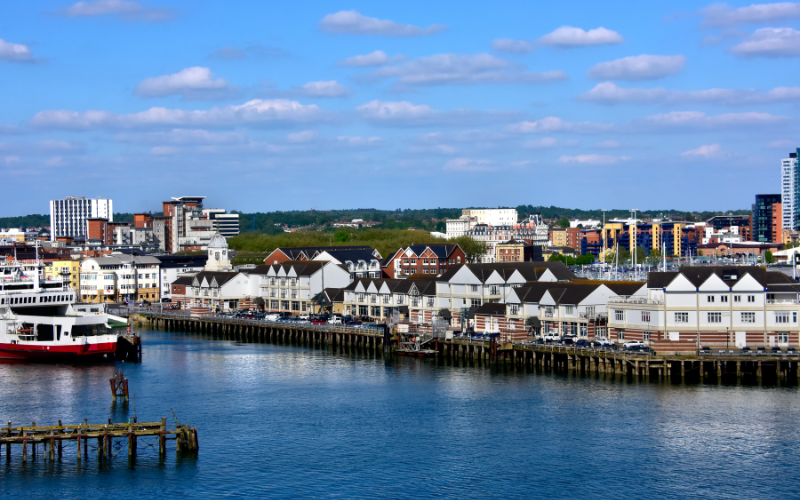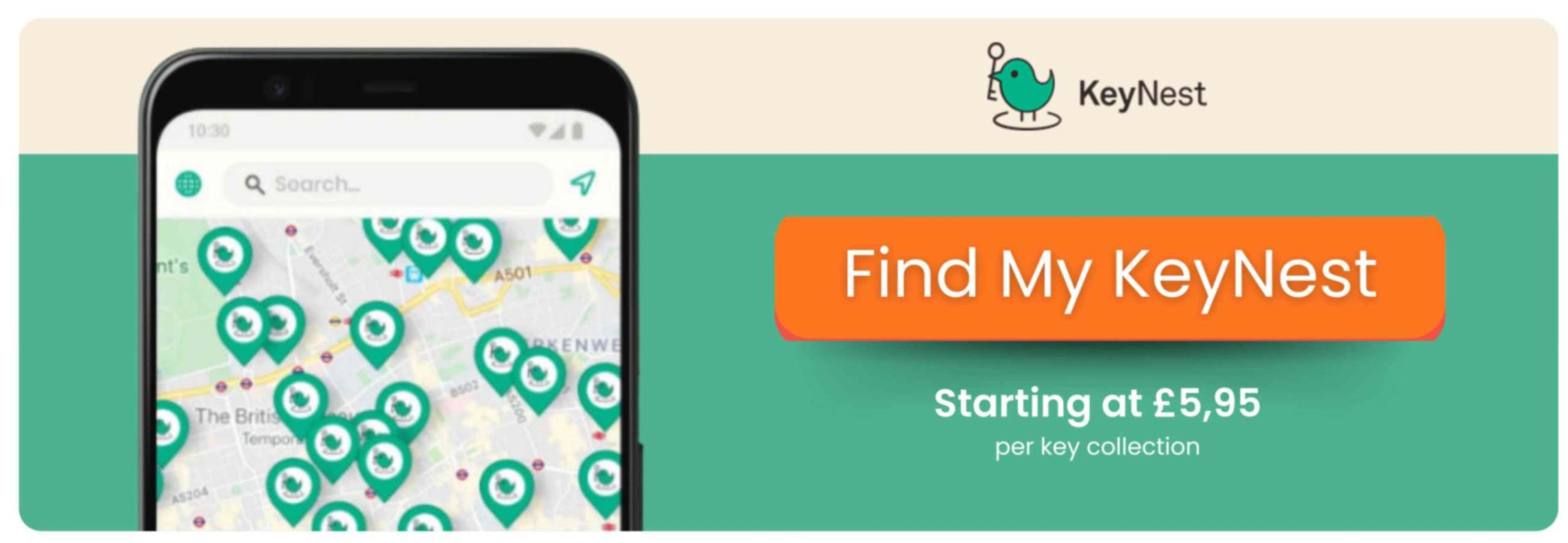Over 1500 key exchange locations nationwide
Airbnb Regulations In Southampton For Short-Term Rental Hosts
Hosting a vacation rental in Southampton offers incredible opportunities to earn extra income while welcoming travelers to one of England’s most vibrant cities. However, being an Airbnb host comes with the responsibility of understanding and adhering to local regulations in the area's rental market. Southampton, with its rich maritime history and bustling tourism, has unique rules designed to maintain the city’s charm and balance between residents and visitors.
These regulations impact various aspects of short-term rentals, from property registration and with no exemption to council tax compliance and guest behavior. Ignoring these laws can lead to fines, property restrictions or removal from the rental platform like Airbnb. Complying with the rules in Southampton short-term let regulations ensures a positive hosting experience while contributing to the local economy. For new and seasoned hosts alike, it’s essential to stay updated on the legal landscape and any recent changes in short-term rental policies.
This guide explores the core Airbnb regulations in Southampton, providing clarity and actionable tips for compliance. From safety standards to insurance requirements, this article will equip you with the knowledge needed to host successfully. Let’s dive into the key aspects of Airbnb hosting in Southampton.
1. Registering Your Airbnb Rental In Southampton
Before putting your property in the Airbnb listing platform in Southampton, you may need to fill up the rental permit application and register your property with the local authorities. Property registration helps ensure that short-term rentals operate within the legal framework and do not disrupt local communities as one of the important guide for Airbnb hosts.
Understanding this requirement is crucial to avoid fines or restrictions on your property as a homeowner.
Property use classification: Check whether your property falls under residential or commercial classification.
Council registration: Some properties may require official registration with the Southampton City Council.
Change-of-use permissions: If your property operates primarily as a short-term rental, you may need planning permission for a change of use.
Notify your landlord: Tenants must have explicit landlord approval for short-term rentals.
Maintain documentation: Keep permits and registration details handy for inspections or legal queries.
Regular updates: Stay informed about new council regulations for Airbnb properties.
2. Tax Responsibilities For Short-Term Rental Hosts In Southampton
Airbnb hosts in the town of Southampton must understand their tax obligations to comply with HMRC regulations. Whether you’re renting out a single room or an entire property, all income earned from Airbnb is taxable. This section explains what taxes you may owe and how to manage them effectively.
Declare all rental income: Airbnb earnings must be reported to HMRC, regardless of amount.
Take advantage of allowances: Use the Rent-a-Room Scheme for tax-free earnings up to £7,500 per year if applicable.
Track expenses: Keep records of hosting-related expenses like cleaning and repairs for tax deductions.
Be aware of VAT thresholds: Exceeding £85,000 in earnings may require VAT registration.
File self-assessment tax returns: Submit accurate annual tax returns to HMRC.
Seek expert advice: Consulting a tax professional can help simplify your responsibilities.
3. Zoning And Airbnb Properties That Need Planning Permissions
Southampton has zoning regulations and require planning permission for Airbnb short-term rentals. These rules ensure that Airbnb properties do not disrupt the balance of residential neighborhoods.
Ensure compliance and familiarize yourself, as property owners, with these regulations so that you can prevent fines or disputes.
Zoning restrictions: Certain neighborhoods may limit or prohibit short-term rentals.
Planning permission: A change-of-use application may be required for full-time Airbnb properties.
Monitoring rental frequency: Exceeding a set number of days may trigger additional permissions as a short-term basis occupancy rentals.
Noise control policies: Properties must comply with noise ordinances to avoid complaints to continue to rent out their homes.
Shared housing rules: Check specific rules for multi-tenant or shared accommodations.
Consult the council: Contact Southampton City Council for clarity on local planning laws.
4. Safety And Health Compliance For Airbnb Properties In Southampton
Careful planning of safety and health compliance are top priorities for any rental homes. To rent out your property in Southampton, it requires properties to meet specific standards and understand the specific regulations to protect both guests and hosts.
By adhering to these rules, you can ensure a safe and enjoyable experience for all in your short-term accommodation.
Install smoke and carbon monoxide detectors: These are mandatory in all short-term rental properties.
Provide fire safety equipment: Fire extinguishers and clear escape routes are essential part of having a short-term regulations.
Gas and electrical safety: Arrange regular checks by certified professionals.
Maintain cleanliness: High hygiene standards reduce health risks for guests.
Display emergency information: Provide contact numbers and safety procedures clearly.
Conduct safety assessments: Regular inspections can prevent accidents and liability issues.
5. Insurance Requirements As Part Of Short-Term Rental Regulations
Standard home insurance may not cover Airbnb hosting, so it’s crucial to secure the right coverage. Proper insurance protects you from financial loss due to property damage, liability claims, or guest injuries. Here’s what Southampton hosts need to know.
Specialist insurance policies: Choose coverage tailored for short-term rentals.
Liability protection: Ensure your policy covers injuries sustained by guests on your property.
Damage coverage: Include protection against accidental or intentional guest damage.
Host Guarantee Program: Airbnb offers limited protection but review its terms and conditions.
Loss of income coverage: Some policies compensate for income lost due to unforeseen disruptions.
Compare policies: Shop around for the best coverage and rates.
6. Setting Clear House Rules For Guests Of Airbnb In Southampton
Establishing clear house rules is essential for maintaining a harmonious hosting experience. House rules help manage guest behavior, set expectations, and prevent disputes. Here’s how Southampton hosts can craft effective house rules.
Occupancy limits: Specify the maximum number of guests allowed.
Noise restrictions: Enforce quiet hours to avoid disturbing neighbors.
Smoking policies: Clearly state whether smoking is permitted.
Pet guidelines: Include rules for bringing pets, if allowed.
Check-in and check-out times: Provide clear instructions to avoid scheduling conflicts.
Penalties for rule violations: Outline consequences for breaking house rules.
Navigating Airbnb Regulations In Southampton
Successfully hosting on Airbnb in Southampton requires a thorough understanding of local regulations and responsibilities. From property registration to tax compliance and safety standards, adhering to these rules ensures a seamless hosting experience. By following zoning laws and obtaining necessary permissions, you can avoid fines and maintain good community relations. Tax obligations, while daunting, can be managed with proper record-keeping and professional advice. Safety compliance and proper insurance coverage protect your property and guests, giving you peace of mind.
Setting clear house rules ensures smooth interactions with guests and prevents misunderstandings. Staying informed about Southampton’s evolving regulations will keep you ahead of potential changes. By complying with these guidelines, you contribute to the city’s thriving tourism industry and enjoy a rewarding hosting journey.
About Us: KeyNest
KeyNest offers you a convenient service for storing and exchanging your property keys. You can drop off a key at any of the 7,000+ locations in our network, so there’s one such Point located next to your property.
Guests, cleaners or contractors can then collect the key securely from a KeyNest Point or KeyNest Locker which is usually open 24/7. You'll be notified each time the key is picked up or returned, and you can even customize check-in and check-out times. By leveraging technology and a global network of locations, KeyNest continues to redefine property management, offering solutions tailored to meet the evolving needs of the rental market..
KeyNest has an ever-expanding global network of locations located just minutes from your property. To find out more you can contact us.
Neil Beltran 20 January 2025




